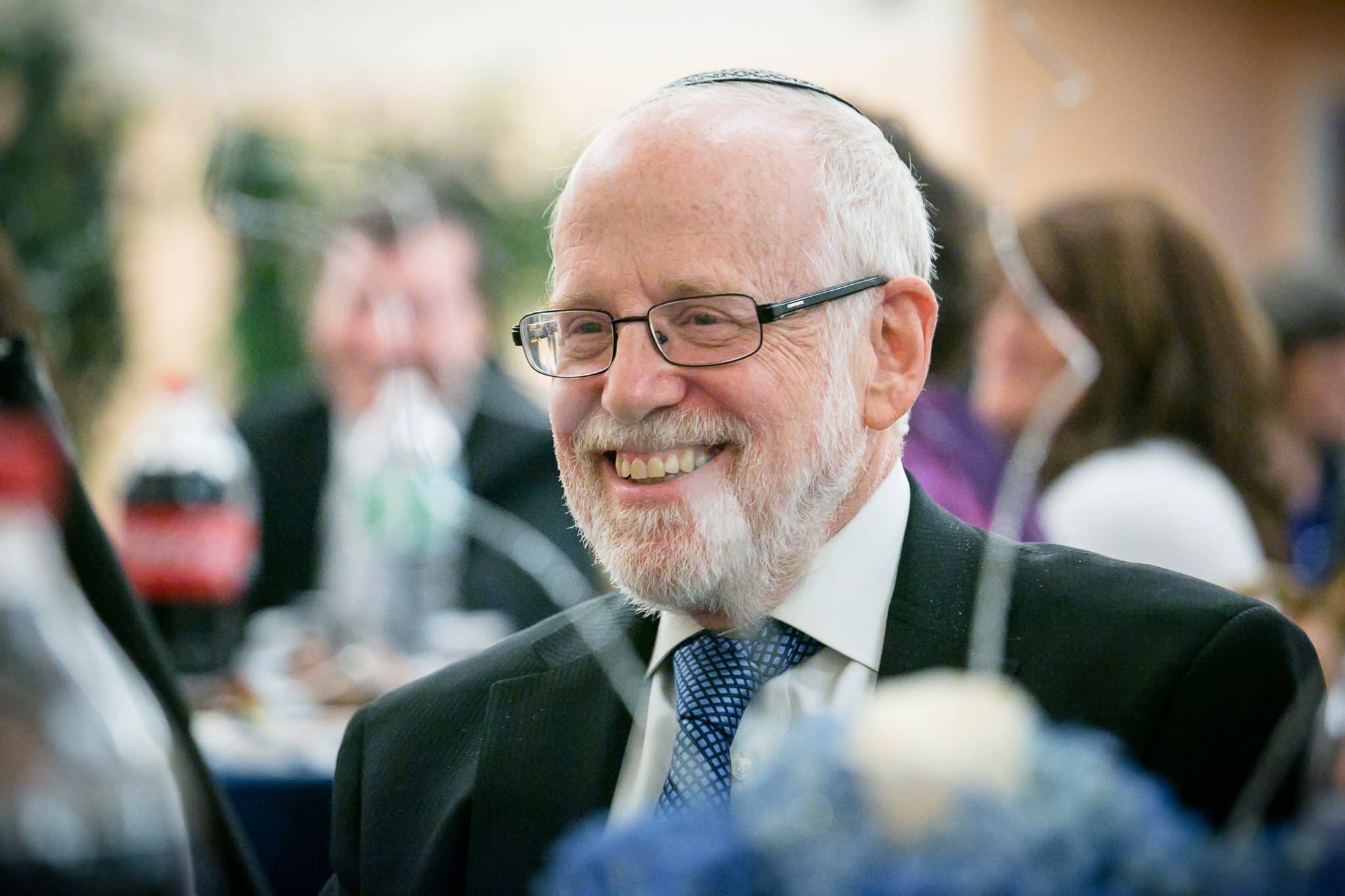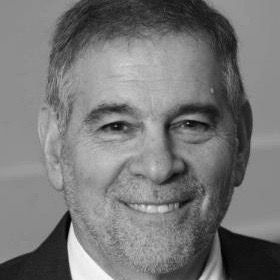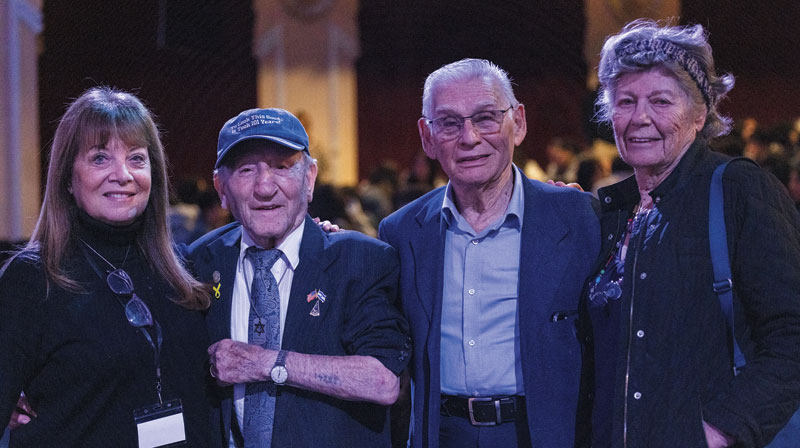
Steven Lowenstein, a distinguished Jewish historian and accomplished social worker died on May 31, the 8th day of Sivan at the age of 75.
Born in 1945, weeks before the end of the war, his parents Max and Yetta had emigrated to the United States from Nazi Germany just in the nick of time. His father was a chaver, the title given to learned scholarly Jews in Germany. He grew up in what was euphemistically called the “Fourth Reich” or “Frankfurt on the Hudson,” Washington Heights, N.Y. in an Orthodox community comprising Jews who had the wisdom and good fortune to leave Nazi Germany and sought to preserve in this New World elements of the world they were forced to leave behind. German was the language of the street and the synagogue. The synagogue of his childhood was Shaare Tikvah, the Gates of Hope. His parents and neighbors were displaced men and women, living freely in an American exile. They were joined within the next five years by Holocaust survivors.
The melodies of his youth were from Frankfurt, the pronunciation, the sense of dignity and decorum identical, top hats and morning suits were seen in the synagogue. One could hear the echo of their voice in Lowenstein’s prayers, even as he adopted the Sephardic pronunciation of contemporary Hebrew. He sounded alte/neu — old/new worldly, authentic to his very being, combing the world of his childhood with the world in which he lived.
A Yekke by birth, Lowenstein saw the community from within. He studied that world and transmitted its ethos and history into English, explaining it brilliantly to an American audience. The scion of a shattered world, he sought to make it whole. As a child he heard fascinating stories, painful stories, moving stories. He was to collect stories to the end of his life.
Lowenstein was a graduate of Bronx High School of Science, then, as now, the best high school in New York City. He entered City College, a natural progression for him and many of his classmates from Manhattan, where he received his BA and went on to Princeton where he received his MA and Ph.D.
He married Marilyn Grollman in 1974 and had two children: Ruth Lowenstein Glasser (Rabbi Yaakov) Kenneth (Penina)Lowenstein, who gave them nine grandchildren. Marilyn died in 2007 from pancreatic cancer, the very disease that was to take Lowenstein more than a dozen years later.
After teaching at Columbia University and Monmouth College, and working as a researcher at the nonprofit YIVO Insttute for Jewish Research and Leo Baeck Institute in New York, Lowenstein came to Los Angles in 1978 to begin a 30 plus year career at American Jewish University where he served as Isadore Levine Professor of Jewish History. He was the author of a large number of scholarly works, including “The Jewish Cultural Tapestry: International Jewish Folk Traditions,” “The Berlin Jewish Community: Enlightenment, Family and Crisis, 1770-1830,” and “Frankfurt on the Hudson: The German-Jewish Community of Washington Heights, 1933-1983, Its Structure and Culture.”
Winner of the National Book Award, “The Jewish Cultural Tapestry” revealed a mastery of Jewish tradition and narrative on five continents. It vividly captured the diversity of Jewish life in the many lands in which Jews have lived and how woven together unity was maintained within diversity.
His career at AJU included his service as the dean of the college. He stepped in to provide badly needed continuity and leadership after the short-lived tenure of recent predecessors. A popular teacher and a scholar at the prime of his creativity, his beloved wife had died and he was living alone when he took a bold step of retiring, not retiring from, but retiring to and reinventing himself, reimagining himself. He returned to school pursuing a masters in social work. The oldest student in his class, probably with more publications and a more distinguished scholarly record that even the most accomplishment of his teachers, Professor Lowenstein—now Mr. Lowenstein — sat in the classroom, worked with students and teacher’s assistants younger than his own children and continued to learn, fascinated by what he was learning, even more by what he could do with what he was learning.
One would have imagined that given his life-long immersion in the Jewish community and his dedication to the Jewish people, he would have chosen to work in the Jewish community, but no. Lowenstein spent the next decade working with drug addicts on skid row and the homeless — people far removed from his former world. He was constantly amazed not only by what he had to offer but what how much he had to learn. And learn he did. His conversations had a new intensity, his life a new vitality.
On a personal level, over the last years, Lowenstein found solace and joy in his relationship with his “sweetheart” Rabbi Patricia Fenton who was a source of strength, care and love.
Lowenstein never abandoned his scholarship. He continued to write and research German Jewry. In November, a group of scholars from Hebrew Union College, American Jewish University, UCLA and USC gathered to honor Dr. Steven Lowenstein on the forthcoming publication of his major work, “The Population History of German Jewry: Based on the Collections and Preliminary Research of Professor Osiel Oscar Schmetz.” Naturally, he insisted on giving credit in the title to the work of a predecessor but he built upon Schmetz’s foundation, enlarging the scope.
Lowenstein’s significant contribution was to ensure his readers did not drown in the comprehensive, encyclopedic, overwhelming information. He absorbed the details and gleaned from those details the story of German Jewry from 1815 to 1939, including German Jewry during industrialization, urbanization, migration (migration and outmigration primarily to the United States), revolution, emancipation, democratization, escape, exile, persecution and ultimately, deportation and annihilation.
He illuminated whatever he touched. He made the demographics come to life. It was not about statistics but about real people, real communities
When illness struck, Lowenstein had no illusions as to the trajectory of his disease. He knew his life would end but accepted that fate with serenity, a believing Jew to the end. He wanted, however, to live to see three goals completed.
A celebration of his final work by colleagues and friends at his beloved congregation B’nai David, his spiritual home throughout his life in Los Angeles, where he was the gabbai and where he could be found daily. His revered Rabbi, Yosef Kanefsky, introduced the event; the bar mitzvah of Kenneth’s oldest son Nahum Moshe in February moved from Cleveland to Los Angeles so he could attend, and the publication of his final book. He was informed that it would be published by Academic Studies Press, but days before his death.
Not a man given to praise easily, David Myers, fellow historian and friend summed up the quality of Lowenstein’s scholarship: “Steven Lowenstein was one of the most important Jewish social historians of our time. He has also had a remarkable second career, as a social worker, on Skid Row. In both cases, he was a collector of human stories, which he reconstructed with extraordinary skill and sensitivity.”
His daughter Ruth recalled him as father and grandfather, never happier than playing on the floor with his grandchildren, teaching by example the values of tradition, telling story after story and illustrating with each story the sacred value of each individual.
Too few in years, still he lived a life that was complete with family and friends, scholarship and accomplishments, love and tradition. He taught others, cared for others and gave to others. He knew how to live and why to live so he could die with his work complete, his life an organic whole, in his own words, a tapestry.






















 More news and opinions than at a Shabbat dinner, right in your inbox.
More news and opinions than at a Shabbat dinner, right in your inbox.